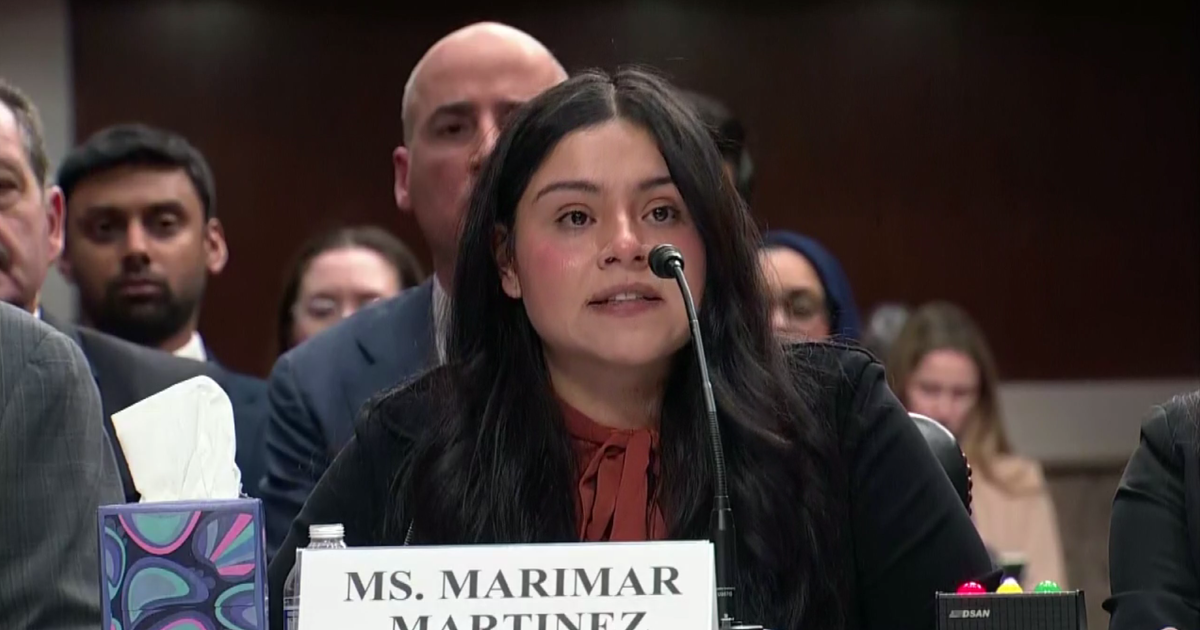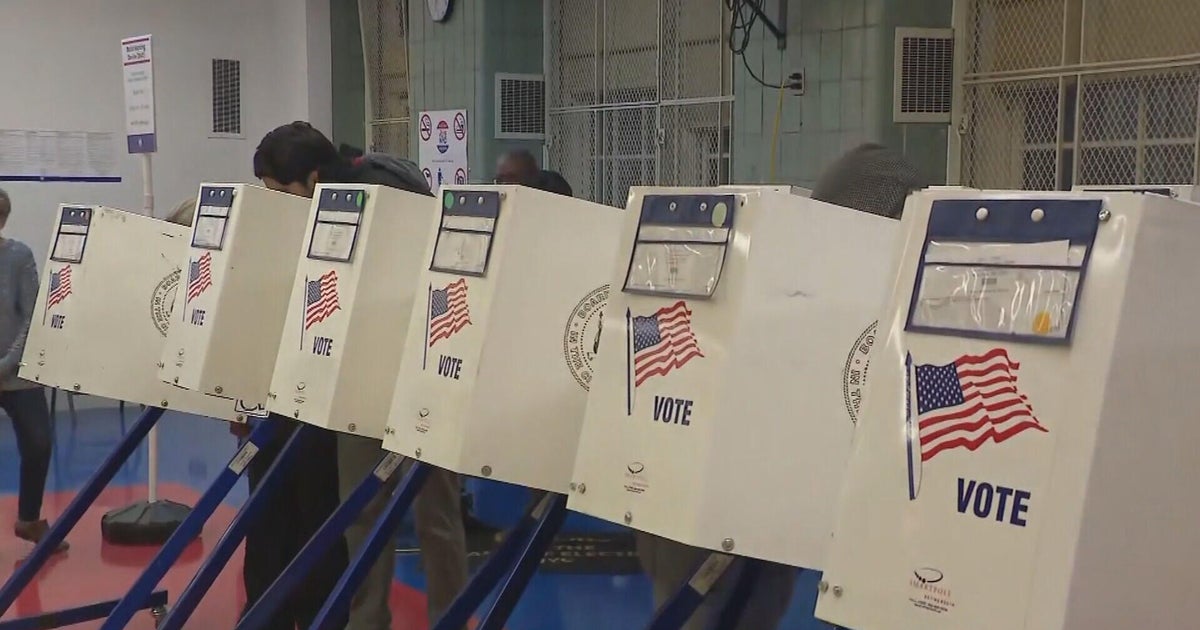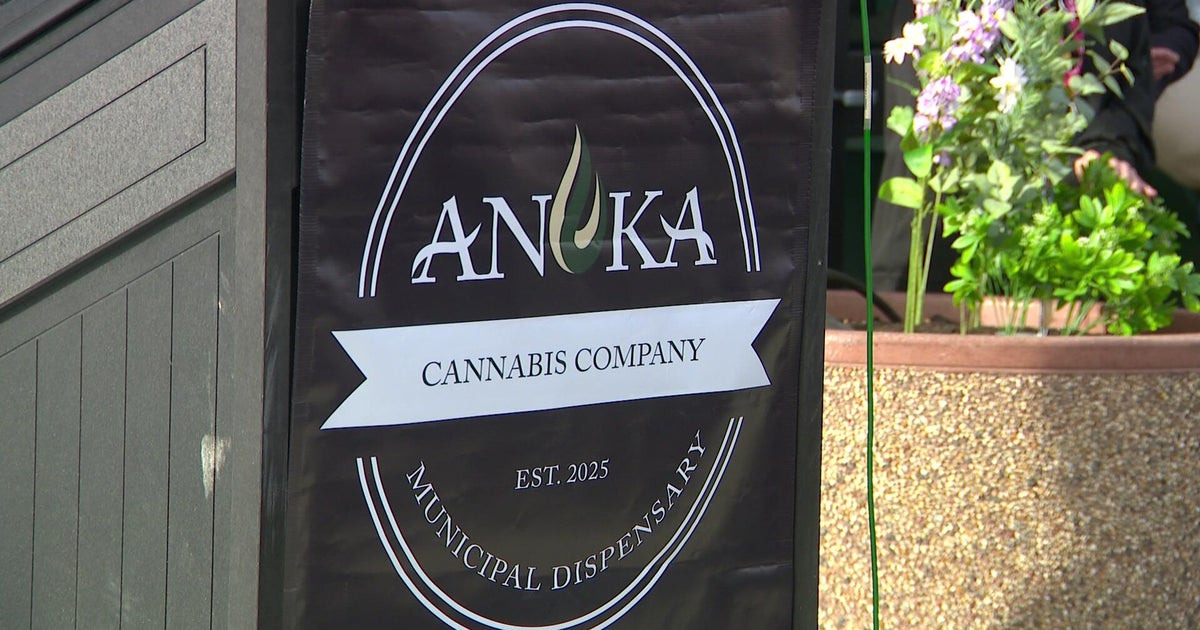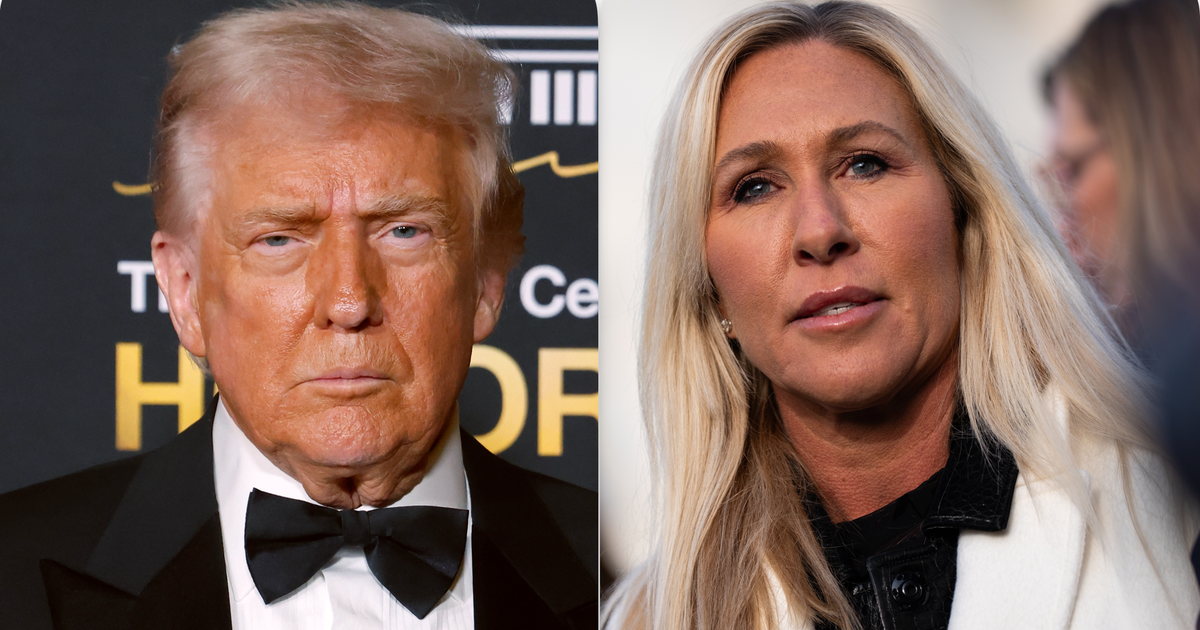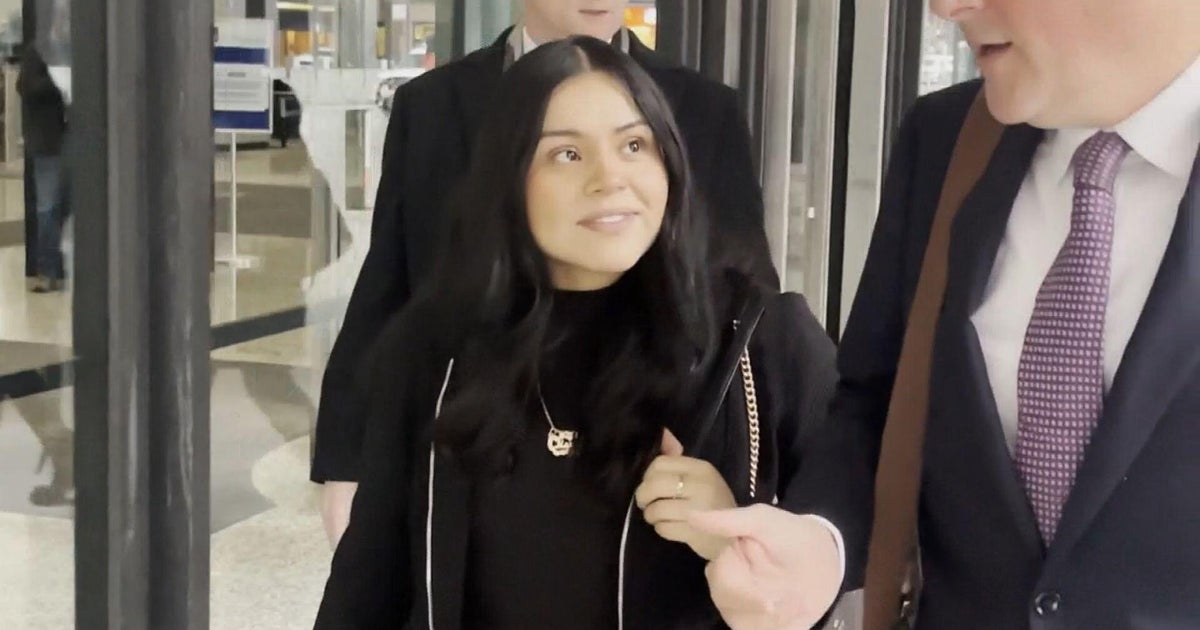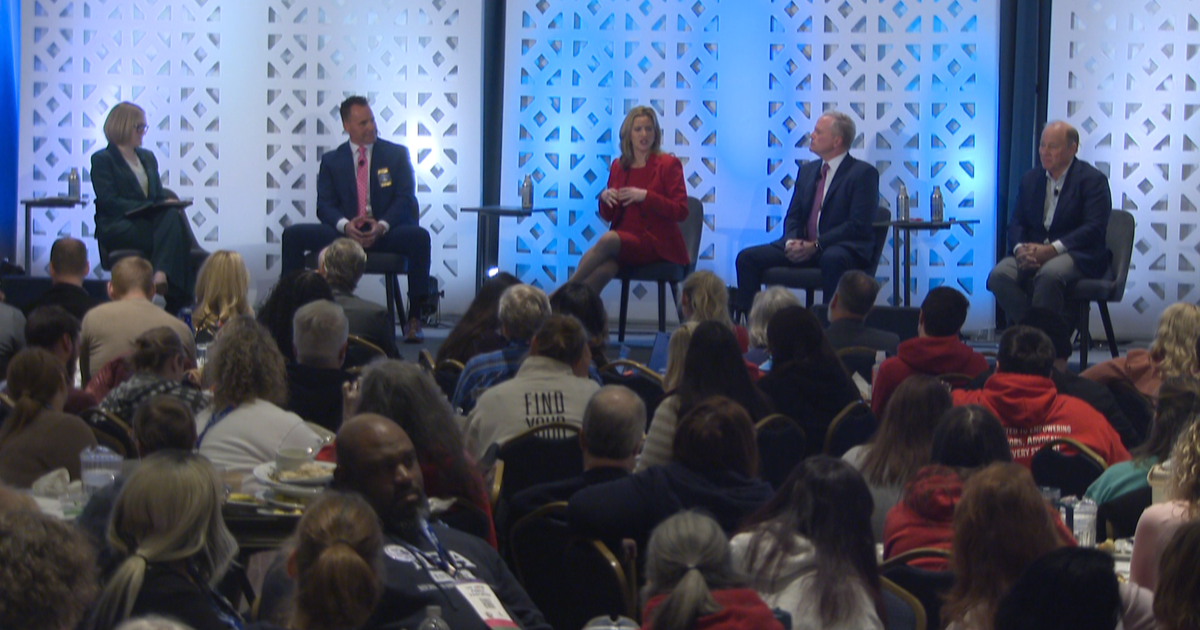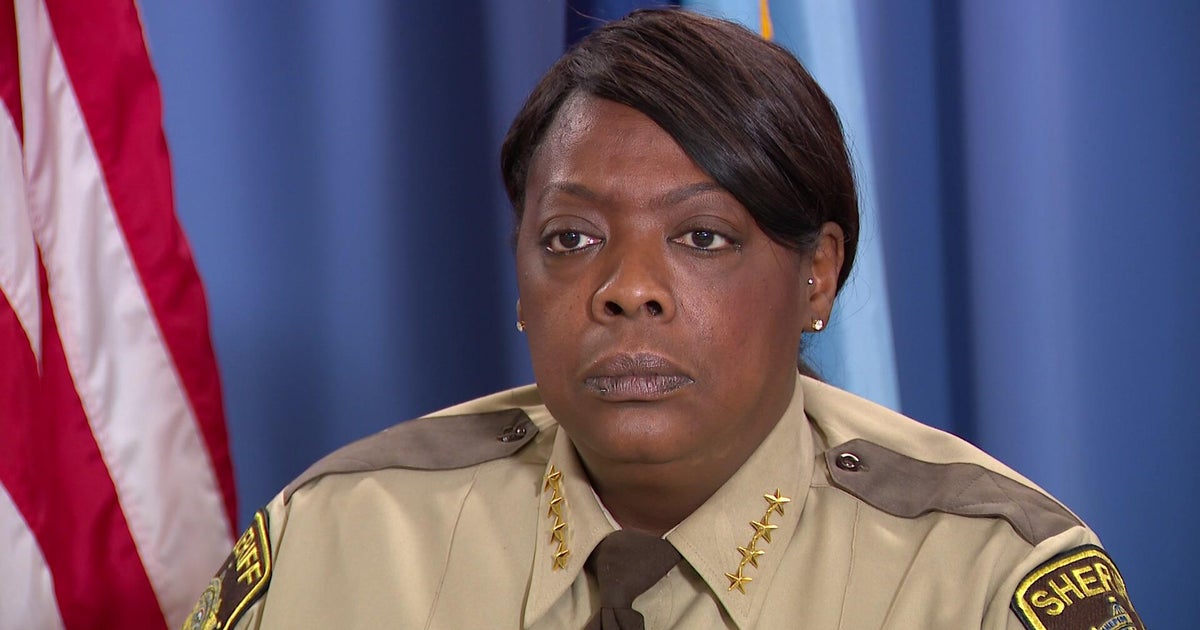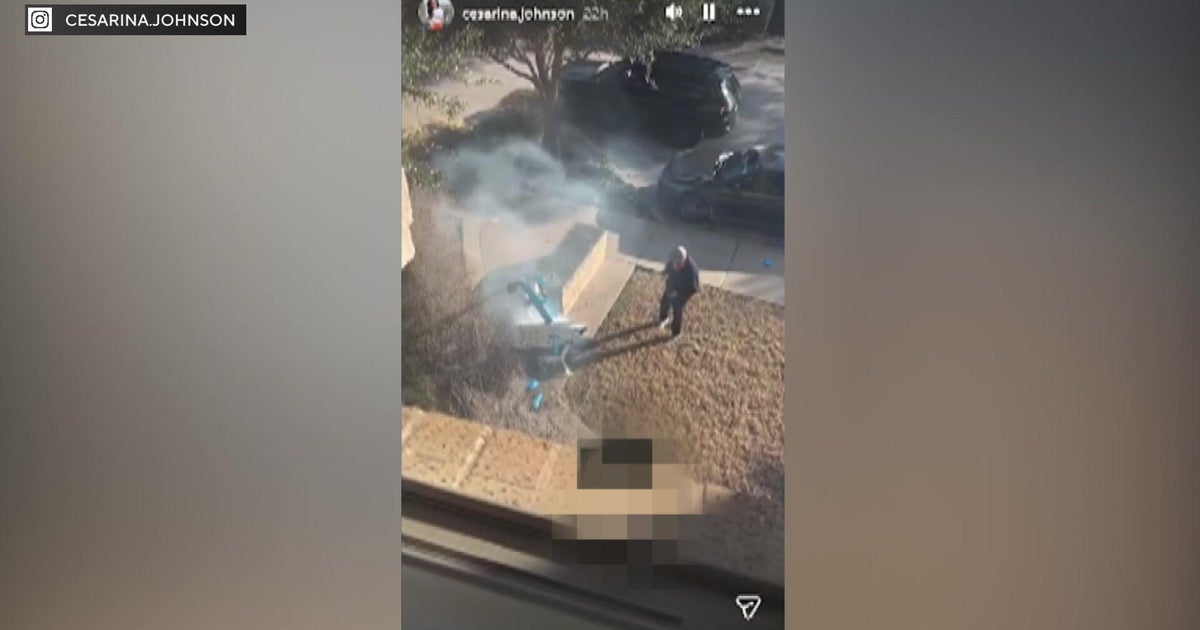Chris Wright: 2018 Election Guide
Welcome to WCCO.com's 2018 political guide!
We reached out to all Minnesota candidates running for U.S Senate, Governor, U.S Congress, Attorney General, Secretary of State and State Auditor this fall. Candidates were asked to provide a two-minute video discussing their platform as well as answer a set of our viewer's questions.
Above is the video and below are the answers Chris Wright provided. This is not a paid advertisement nor does WCCO endorse any candidate.
Responses from Chris Wright, Grassroots - Legalize Cannabis candidate for Governor:
The Trump Administration's new E.P.A rollback of Coal Pollution Regulations allows states to decide how much to cut emissions. What is your stance on the Clean Air Act and what policy would you propose if elected?
See my plan to COMBAT GLOBAL WARMING-ZERO BY 2050 at VOTEWRIGHT.ORG. Anyone who puts the profits of the few above the survival of our children, grandchildren and humanity has a broken moral compass, PERIOD. Climate scientists have estimated that we can only pollute 270-Gigatons of greenhouse gases from now on to stay within 2-degrees Celsius above pre-industrial levels to avert planetary catastrophe. Therefore, we must boldly reduce at 3-percent per year to reach zero greenhouse gas emissions by 2050.
First, I propose a simple law that begins reductions of 3% per year that says, "All new electrical power generation shall be renewable." That means storage too.
Second, the law will demand immediate plans for public and private
reductions in three stages—30% by 2025; 60% by 2035; and 100% by 2050.
Third, develop standards for public and privately owned electric, natural gas, refineries, metal producers, cement makers, transportation, farms, architecture, and building retrofitting to meet target deadlines.
Constructing a renewable infrastructure is not a sacrifice: it is an investment that will pay for itself in local self-reliance, thousands of good paying jobs, lower energy costs and better health.
Should people convicted of non-violent drug offenses be released from prison and their records expunged?
Someone asked me, "Chris, don't you have something better to do with your life than legalizing marijuana and drugs?" I said, "I'm fighting for freedom, but let me ask you a different question, 'Don't you have something better to do with your life than electing lawmakers to create a complete police state?'"
President Reagan's racist War on Drugs and his mass incarceration surveillance police state has created the largest police state the world has ever known. Ronald Reagan, with the help of his successors, like Bill Clinton, has the ignominious honor of having jailed more people than Joseph Stalin's Gulag. Talk about condoning your own oppression. Who could be proud of voting for people like that? America jails more people than the totalitarian Chinese, a country with three times the population of the United States. We're no longer the land of the free, but the home of depraved.
Vices are not crimes. Crimes are acts which hurt the person or property of another. By criminalizing vice we have monetized crime, which is tantamount to soliciting crime. There's no such thing as a drug related crime, only a prohibitionist created crime. There's no law against being a prohibitionist lawmaker, but to say that what they've done is not criminal is to declare the truth to be a lie.
Yes, people convicted of non-violent drug offenses should be released from prison and their records expunged in a law that also repeals drug prohibition; regulates and taxes narcotics just like alcohol; and designed to put the gangsters out of business. That means, you can't charge gangster prices in taxes and expect to put the gangs out of business, like some proposals to legalize cannabis that I've seen introduced by Democrats.
While I do not think my money-chosen adversaries are racist, they still support Reagan's structurally racist War on Drugs. My opponents will probably answer yes as well, mainly because they don't want to appear as though they support the racial disparities of incarceration that come with their support for a war that was always racist in origin and in practice.
Should Minnesota legalize and regulate sports gambling?
As I noted in Question 2, vices are not crimes. In 1875, legal theorist Lysander Spooner said, "Vices are those acts by which a man harms himself or his property. Crimes are those acts by which one man harms the person or property of another." Should Minnesota legalize and regulate sports gambling? My answer is, "Yes."
What is the most important priority investment you will make in Minnesota government if you are elected (e.g. education, transportation, health care)?
The most important investment and resource of any state is its people. I see education as a human right essential to the exercise of an effective democracy.
At all levels of education the teaching of critical thinking is paramount. Without the moral values of truth, fairness and objectivity, in a question driven society trained in critical thinking, a democratic government cannot endure nor be reformed.
Finland has world's best educational system.
In Finland, the right to education is guaranteed in their Constitution free of charge, teachers must have a master's degree. By contrast, the minimum requirement for a teacher in Minnesota is a bachelor's degree and the teacher must go into debt to pay for their education. We could dramatically improve our educational system by applying the Finnish educational standards, which, ironically, were borrowed from American educational research. Fins spend about $2,000 more per pupil than Minnesota, but their high school graduation rate is 99% compared to our 82.7%. We have a long way to catch up with Finland, but if I have my way, Minnesota, not Finland, will have the most educated population on earth.
In his book, "Why Public Higher Education Should Be Free" author Robert Samuels added up the average cost of tuition, room and board for undergraduates in 2010. When he added in all the various state and federal tax breaks and deductions for tuition, that benefited mostly the wealthy, he realized that it is possible to make all public higher education free with current spending amounts.
At a minimum, minus federal funding, Minnesota can and should provide two-year tuition-free higher education which includes trade school.
Addressing tuition-free higher education
1. Direct conditional funding for undergraduate education.
2. State money should only be spent on the condition that public colleges shall maintain:
a. 75% of their faculty as full-time
b. 50% of capital shall be spent on direct instructional costs
c. 25% of classes shall have no more than 25 students.
3. I propose that the legislative auditor investigate the true cost of undergraduate education at the University of Minnesota and our State College and demand transparent accounting.
4. To rein in administrative bloat, we should determine the optimum ratio of administration to students and reasonable compensation for those services. At $120,000, the governor makes $75,000 less than UofM President, Eric Kaler's chief of staff. I should be applying for that job.
5. End the privatization of higher education in the public arena.
What are your views (if any) about the divide between rural/urban Minnesota; if so, what would you do to address urban/rural concerns (e.g. infrastructure, internet access, economic development)?
Half of the US economy is local small business along with half the jobs, yet, virtually all of the economic development investment subsidies have been for non-local businesses. It's remarkable how well small business has done despite the best efforts of public policy to kill them. I'd like to see that change.
Most of the focus on community development has centered on "ATTRACT AND RETAIN" policies. Yet, you cannot attract a local business and if you have to pay a corporate welfare bribe to attract or keep them, then how local are they anyway. We need a different approach that develops our local businesses.
When it comes to economic development, we don't have an unlimited budget and unlimited time. Every dollar we spend on a pointless attraction or retention is a dollar that is not spent nurturing our local self-reliance. Every hour spent attracting business outside our communities is an hour not spent working shoulder to shoulder with our local businesses. My responsibility as a civil servant is to get the most impact for the least cost. It is clear to me that supporting local business is going to be the most effective way of promoting local prosperity.
How to Nurture Local Business?
Economic Leakage Analysis—let's plug up our economic leakage through import substitution. I propose that Minnesota do a community by community leakage analysis (Minnesota IMPLAN and BALLE calculators), starting with the poorest communities, identifying all those things in the local economy where people are unnecessarily buying outside goods and services. Those unnecessary imports represent money leaking out of your economy. If we can plug those leaks with new import substituting business we can grow the economy and pump up the local multiplier. (For example: Instead of exporting our dollars to oil, gas, and coal producers outside Minnesota, we could substitute renewable energy and keep that money in Minnesota's local communities.)
Harness Local Investment: How can we bring capital into local business? How about keeping your money in a local bank or credit union which on average give 56 percent of their loans to local businesses, while big banks only give 18 percent? How about MNVest? What's MNVest? MNVest is crowdfunding that allows any resident of the state to invest up to $10,000 per person per offering in local businesses. Of course, investing in securities can be risky, so buyer beware, but many Minnesotans invest in non-local securities on Wall Street, but invest nothing in the other half of the economy located in Minnesota and the returns are higher. I'd like to see that change. (See www.mnvest.org )
Broadband Infrastructure Project
While running for governor in 2010, I introduce the Broadband Infrastructure Project.
Minnesota should provide broadband to every household in the state.
A Broadband Infrastructure Project will provide Minnesota with the fiber optic infrastructure to become the internet capitol of the world. Minnesota should provide a 200Mbps (megabit per second) connection to every household in the state. We must regard the internet as a basic infrastructure – just like roads and bridges. Everyone must have access to the internet in a knowledge society.
Minnesota should make internet access a fundamental right.
Transportation Infrastructure
I propose the Minnesota Renewable Energy, Broadband and Transportation Act, by reintroducing a modified Minnesota Transportation Act (2012 SF65 Use Of Wealth-Based Bookkeeping Entry Money For Transportaon Funding) to monetize renewable energy and our transportation infrastructure without taxes or bonding, thus creating thousands of good paying jobs, great roads and lower energy costs. See http://moneyaswealth.blogspot.com/2008/10/minnesota-transportation-act.html
The bible says that the borrower is servant to the lender. When Congress surrendered the money power to the bankers they enslaved Americans as servants to the lender; sanctioned bankers as the ruling class; and authorized them to dictate our laws. Congress gave banks the power to create 9 out of 10 dollars out of thin air. They create the principal, but not the interest to pay back the loan. So there's never enough money to pay back their loans. I propose regulating state chartered banks to create the interest to pay back their loans in the form of infrastructure that benefits the whole state.
Should Minnesota pass a law to require criminal background checks for every gun purchase or transaction in the states?
In 2008, the landmark case, District of Columbia vs. Heller, the U.S. Supreme Court ruled that the Second Amendment protects an individual's right to possess a firearm for self-defence unrelated to service in a militia. Justice Antonin Scalia handed down the majority decision deeming many forms of gun control to be constitutional.
I think Antonin Scalia was right and that "longstanding prohibitions on possession by felons and the mentally ill…were constitutionally permissible." So I don't see a problem with reasonable gun control bills containing a background check. Because most firearms deaths are suicides, sometimes suicide-murder, I would like to see an immediate temporary restraining order on anyone who has been admitted for medical treatment for self-inflicted suicidal wounds included on a background check. Once they're not suicidal they still can petition for return of their gun rights.
When it comes to a ban on semi-automatic assault rifles, I disagree. Banning non-machine guns only serves to punish recreational gun owners and serves no public safety interest.
Do you believe recreational marijuana should be legalized in Minnesota?
As a founding member of the Grassroots Party in 1986, I helped to write our mission statement which reads in part, "The primary purpose of the Grassroots Party is the total legalization of cannabis and the pardon and release of all prisoners held on so-called "marijuana" charges."
But moreover cannabis should already be legal. Our lawmakers have been in violation of the Minnesota's Constitution which says in Article 13, Section 7, "Any person may sell or peddle the products of the farm or garden, occupied and cultivated by him, WITHOUT obtaining a license therefore." Narcotics are not illegal. The federal and state controlled substances acts do not make drugs illegal unless you are in possession without a license. The highest law in the land says you can sell and peddle the products of the farm or garden WITHOUT a license. Then why do you need a license? This constitutional amendment was adopted in 1906 when cannabis was widely grown throughout Minnesota and used for its medicinal tinctures. But prohibition, not the constitution, is the highest law in the land. There's obviously a War on Drugs exception to the Bill of Rights and the courts don't care who makes the laws as long as they get to interpret them. How arbitrary and capricious could the courts be? The only way to restore the Constitution is for the people to tell the legislature and the courts to go to the stygian depths that are bottomless by electing officials who honor the Constitution they are sworn to uphold and defend.
Now that legalization seems to be a foregone conclusion, there is a new tyranny on the horizon. Some Democrats have introduced bills to legalize cannabis with a Constitutional amendment that takes away your right to sell and peddle cannabis without a license. Meaning, you'll need a license to grow cannabis in your back yard or farm. I say, horse hockey. Here we go again. These politicians are shameless. They politicians are so revenue hungry they want to charge such high taxes that they'll never be able to eliminate the black market. Here I thought the DFL was against charging regressive taxes that impact the poor. Pot makes you cough, but politics makes you gag.
Should Minnesota raise the minimum wage to $15 statewide?
People deserve a living wage. No full-time worker should have to live in poverty or have to rely on food stamps to make ends meet. I agree with a $15 minimum wage tied to inflation over the next few years.
Should Minnesota grant a permit for Enbridge Energy Company to build a new oil pipeline across central Minnesota, and approve a new route for the updated pipeline?
How could anyone in their right mind approve infrastructure permits that threatens the survival of humanity by increasing greenhouse gas (GHG) emissions when our state desperately needs to be reducing at 3% per year, zero GHG's by 2050, is incomprehensible and reprehensible. The Enbridge pipeline has served its useful life. Now is the time to decommission this pipeline.
When we look at places, like Flint, Michigan and 41 other states, that are having water quality issues, why we are allowing a leaky pipeline to continue to be used, endangering millions of people's water supply, is beyond me? It's insane.
Will you abolish MNSure if you are elected?
I'd sure like to abolish MNSure and replace it with a single-payer system like the Minnesota Health Plan proposed by State Senator John Marty.
Opponents of single-payer health care tell us that enormous taxes will have to be raised and we cannot afford this expansion of government. But as a percentage of GDP, America spends almost twice as much as other advanced nations, including Australia, Canada, Denmark, France, Germany, Japan, New Zealand and Taiwan. Which begs the question, "Do you prefer to pay twice as much in the private sector or half as much in the public sector?" Without a reduction in quality, most people would prefer to cut the cost of health care services in half, even if it does raise taxes.
Our parasitic corporatized medical insurance produces no healthcare whatsoever, yet, it feeds on us. What it does produce is healthcare rationing, higher prices, diminished choices, and bureaucracy. This insurance system with close to a third of all health care spending having nothing to do with health care—overhead, underwriting, billing, sales and marketing departments, huge profits and exorbitant executive pay; not to mention the billions wasted and spent on computerized billing fraud and abuse, has become a bureaucratic nightmare.
By learning the art of a model fraud-control strategy, government and the healthcare industry could substantially cut costs without restricting eligibility, denying the needy, or squeezing honest providers out of business. Yet, over ten percent of all health expenditures are defrauded, $350 billion, or about half the military budget down the drain every year. In a single payer system you don't have multiple bills, inscrutable bills, fooling around with codes, and you don't have the incentive to exploit patients that can lead to their harm. (Note: See my plan for Medical Waste, Fraud and Abuse Control)
The marketplace should not be allowed to legislate life and death. It's time to stand up to the mercenary medical insurance lobby that places profits above the health and safety of the people.
Should Medicaid recipients be required to work?
The short answer is, "no." Most Medicaid recipients are already working. If I had my way, we'd abolish MNSure and replace it with a single-payer system that would cover everyone and the need for Medicaid would disappear except for temporary visitors who aren't residents.
The population of Minnesota is expected to grow by 800,000 by 2035. What would you do to accommodate rapid growth on the state's transportation system? Please outline a future funding mechanism for roads and bridges.
The funding mechanism for future transportation infrastructure should come from banking regulations that require state chartered banks to create the interest to pay back their loans in the form of roads and bridges. Here is my infrastructure plan.
S.F. No. 65, as introduced - 87th Legislative Session (2011-2012) [11-0803]
1.1 A bill for an act
1.2 relating to transportation; providing for funding of transportation through new
1.3 regulations governing checkbook money created by state-chartered banks;
1.4 providing a penalty; proposing coding for new law in Minnesota Statutes,
1.5 chapter 161.
1.6 BE IT ENACTED BY THE LEGISLATURE OF THE STATE OF MINNESOTA:
1.7 Section 1. [161.087] USE OF NEW WEALTH-BASED BOOKKEEPING ENTRY
1.8 MONEY FOR TRANSPORTATION FUNDING.
1.9 Subdivision 1. Applicability. (a) The funding of all construction and maintenance
1.10 of all state, county, statutory or home rule charter city, and town highways, streets, roads,
1.11 bridges, transit systems, and other transportation infrastructure must be achieved in lieu
1.12 of taxation or bonding through a revision to current state-chartered bank regulations that
1.13 will provide for the state-chartered banks to create new bookkeeping entry money as
1.14 provided in this section.
1.15 (b) For purposes of this section, "state-chartered bank" means a bank chartered
1.16 in Minnesota.
1.17 Subd. 2. Use of project money. A road authority sponsoring an infrastructure
1.18 project referenced in subdivision 1, shall determine the project to be constructed using
1.19 the current methods for selection and development and shall submit the necessary
1.20 documentation to the nearest state-chartered bank for funding. The submitted
1.21 documentation must contain the accepted, verified, and authorized project bid or the
1.22 amount of funds needed if done by an existing road authority doing the project.
1.23 Subd. 3. Origination and movement of new wealth-based checkbook money.
1.24 (a) Each state-chartered bank shall set up an asset-monetizing account for the sole purpose
1.25 of monetizing infrastructure projects. For all auditing purposes, this account must be
Section 1. 1
SENATE
STATE OF MINNESOTA
EIGHTY-SEVENTH LEGISLATURE S.F. No. 65
(SENATE AUTHORS: JUNGBAUER)
DATE D-PG OFFICIAL STATUS
01/20/2011 66 Introduction and first reading
Referred to Transportation
02/09/2011 199 Withdrawn and re-referred to Commerce and Consumer Protection
S.F. No. 65, as introduced - 87th Legislative Session (2011-2012) [11-0803]
considered as a separate agency of the state-chartered banks and must 2.1 not be considered as
2.2 part of the current ongoing banking operations.
2.3 (b) The state-chartered bank receiving the project information as described in
2.4 subdivision 2 shall then electronically transfer the new funds to the account of the road
2.5 authority sponsoring the infrastructure project, which must use these funds to pay for the
2.6 project and for no other purpose. The road authority is responsible for the oversight of the
2.7 completion of the project according to the terms of the contract.
2.8 Subd. 4. Direction to bank examiners. The state-chartered banks are free of
2.9 any reserve requirements affected by the creation of any and all money that is required
2.10 under this section and any liability that might be created to the state-chartered banks will
2.11 exist only until the money is transferred.
2.12 Subd. 5. Auditing; public transparency. The state and legislative auditors shall
2.13 ensure an ongoing and accurate accounting of the total amount of money created to fund
2.14 projects under this section. The state auditor shall update this accounting on the first
2.15 business day of the third week of each month and make it available online
2.16 Subd. 6. Criminal penalty for noncompliance or fraud. (a) Any noncompliance
2.17 or fraud relating to this section by an officer or employee of a state-chartered bank; an
2.18 official or employee of the state, county, statutory or home rule charter city, or town;
2.19 or an officer or employee of a contractor or subcontractor, is a felony and is subject to
2.20 the penalties provided in paragraph (b).
2.21 (b) Any person found guilty of noncompliance or fraud relating to this section is
2.22 subject to a fine of up to $100,000,000 and imprisonment of up to 40 years, or both.
2.23 Subd. 7. Pilot project. The state shall implement and administer a pilot project,
2.24 which must be completed within 180 days after the effective date of this section, to ensure
2.25 the successful implementation of all procedures required by this section.
2.26 EFFECTIVE DATE. This section, except subdivision 7, is effective August 1,
2.27 2012, and applies to all projects for which bids or funds are solicited on or after that date.
2.28 Subdivision 7 is effective the day following final enactment.
Section 1. 2
